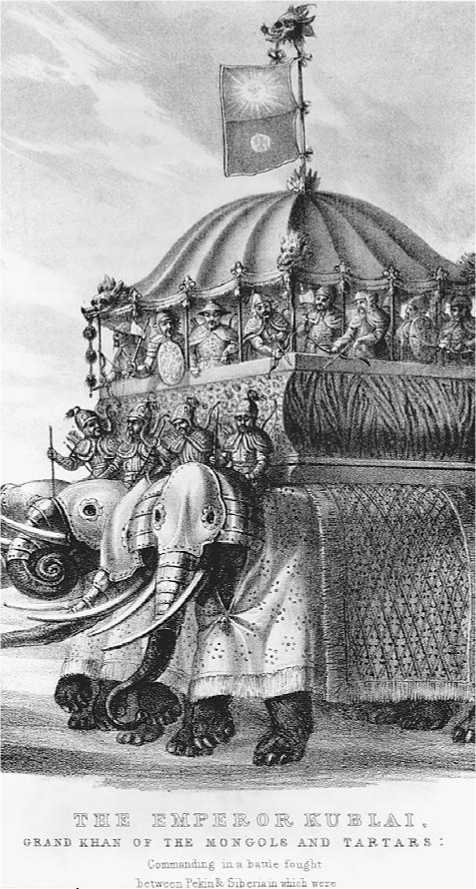In the years after Genghis's death, four separate khanates emerged. Aside from the Golden Horde in Russia and the realm of the Il-Khan in southwest Asia, the Chagatai (chah-guh-TY) khanate, named after one of Genghis's sons, covered the area that today includes Kazakhstan and other former Soviet republics in Central Asia. To the east, in an area that comprised the Mongolian homeland and the Mongols' most prized possession, China, was the realm of the Great Khan, Genghis's successor and the leader of the Mongols. Since Genghis's death, the Great Khans had been minor figures, but in 1260, leadership fell to the greatest of Genghis's descendants: Mangu's and Hulagu's brother Kublai Khan (KOO-bluh).
Kublai and his brothers conquered southern China, all the way to the borders of Tibet, and in 1264 Kublai established his capital at Khan-balik. By 1279 he controlled all of China, and founded the Yuan (yee-WAHN) Dynasty, the first foreign dynasty to rule that country. Kublai extended Mongol conquests deep into eastern Asia, subduing Korea in the north and Burma in the south, but invasion attempts failed in Japan in 1274 and 1281, and in Java in 1293.

Kublai Khan and soldiers traveling on the backs of elephants. Kublai Khan conquered China, and in 1279 founded the first foreign dynasty to rule that country. Reproduced by permission of the Corbis Corporation.
He is best remembered for the splendor of his court in Khanbalik, and for his interaction with the great EuroMiddle Ages: Almanac
Pean explorer Marco Polo, who lived in China from 1275 to 1292.




 World History
World History









